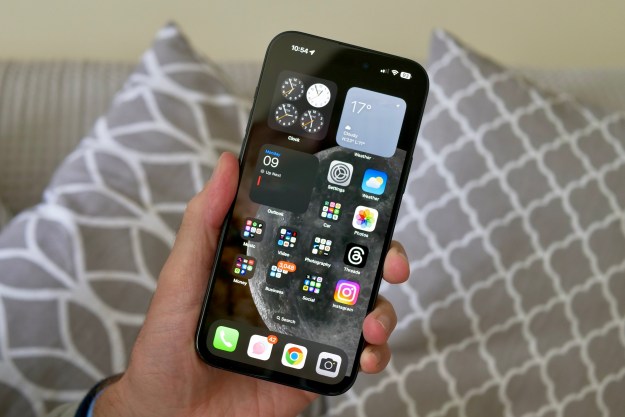No one needs a rehash of the green bubble experience when texting between iOS and Android phones. Google has taken steps to fix this with its implementation of Rich Communication Services, or RCS, in Android. This has modernized messaging between Android phones to near-iMessage levels, but it’s the same old story with iOS.
As Apple has yet to support the new standard, the experience remains as fragmented and fractured as it’s ever been. Google has been begging and pleading for Apple to add RCS to the messages app, to no avail. With iOS 16 around the corner, it’s the perfect time for Apple to finally listen. It’s not just because Google has done a lot of heavy lifting, or that iOS feature releases have been increasingly dry, but also because the EU is breathing down the necks of messaging services.
A better user experience for everyone

There’s no arguing that RCS is simply better than SMS. For Android users texting other Android users, there’s access to read receipts, typing indicators, rich media, and so on. While iMessage is an amazing service for those who use it, RCS would bring these same features to all. Sure, there are some features that probably won’t work cross-platform as well as they would between
Heck, in a time where mobile phone updates are getting less and less exciting, Apple could frame this as helping you connect with your loved ones across platforms. It brought “kinda Facetime” to Android last year, so why not also bring “kinda iMessage”
“Apple is completely uninterested in RCS and doesn’t see any advantage in implementing it. I’d be surprised if they implemented it unless there was some sort of legal or standards-based mandate. Apple’s general stance on cross-platform messaging is that there are a ton of OTT choices which work great — Whatsapp, Signal, Telegram, Facebook — and so there’s no problem that needs to be solved here,” Sascha Segan, PC Mag mobile analyst, told Digital Trends
At the same time, it is worth noting that while this is a nonissue for most of the world, it is a big issue in the U.S., where people rely less on instant messaging apps and more on the default messaging apps that come with their phones. RCS is a standard, and if even Windows Phone supports it, then what is Apple’s excuse?
The EU is watching

The EU’s Digital Markets Act (DMA) compels companies to implement cross-compatibility between messaging services over a certain threshold. It’s likely a response to Meta’s domination of the messaging market with WhatsApp and Messenger, but Apple’s iMessage is in the crosshairs as well. Whether one falls on the side that the EU is being a little heavy-handed or that this is some well-needed regulation, there’s no argument that Apple can very clearly be dinged for restricting the Messages app to an older service. And when it comes to the built-in Messages app, there’s an extra anticompetitive wrinkle that exists.
“The push for a Universal Profile RCS protocol could offer huge business potential, but the fight between Google and Apple about supporting RCS could also leave this as a limited solution if interoperability isn’t achieved,” Zviki Ben-Ishay, CEO at digital engagement firm Lightico, told Digital Trends over email. “The value that Google and Apple want to capture is not just about how many people use which platform, but also more business going through a communication tool they control.”
With Apple offering a business-focused version of iMessage to brands, there’s arguably an incentive for it to delay or ignore RCS wholesale. If any companies lobby Apple for the enhanced business services RCS support, the company can always point to its high-value user base and Business Chat platform as alternatives.
In other words, Google’s framing of Apple’s non-adoption of RCS as inherently self-interested becomes more legitimate the longer the company keeps delaying it. It may be better for Apple to jump rather than be pushed.

Now, iOS 16 is coming in just over two months. RCS has been ready for so long that even defunct phone platforms still support it. If Apple lets yet another year slip by without adopting a standard that’s been set for years, it risks giving ammunition to opponents who claim that the company has been prioritizing its own profits over providing good consumer experiences. For a company that’s embroiled in scandal after scandal, it may well wish to avoid adding more arrows to that quiver.
Editors' Recommendations
- Apple is about to do the unthinkable to its iPads
- Nomad’s new iPhone case and Apple Watch band may be its coolest yet
- iPhone 16: news, rumored price, release date, and more
- Apple accidentally revealed a big iPad Pro display upgrade
- This one thing could make iOS 18 the best iPhone update in years




